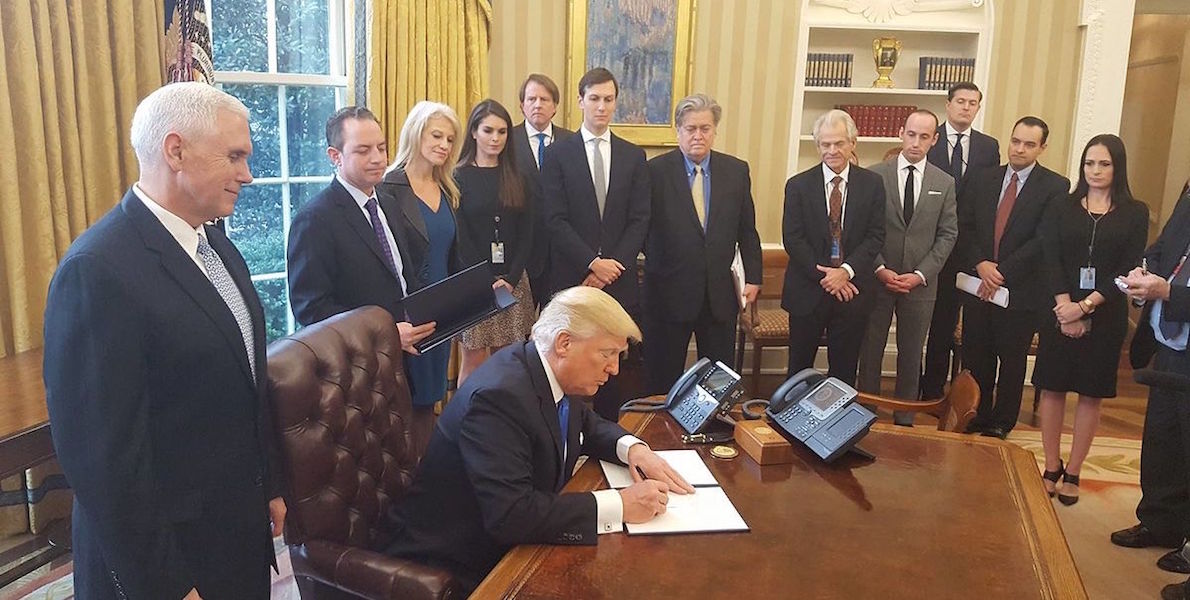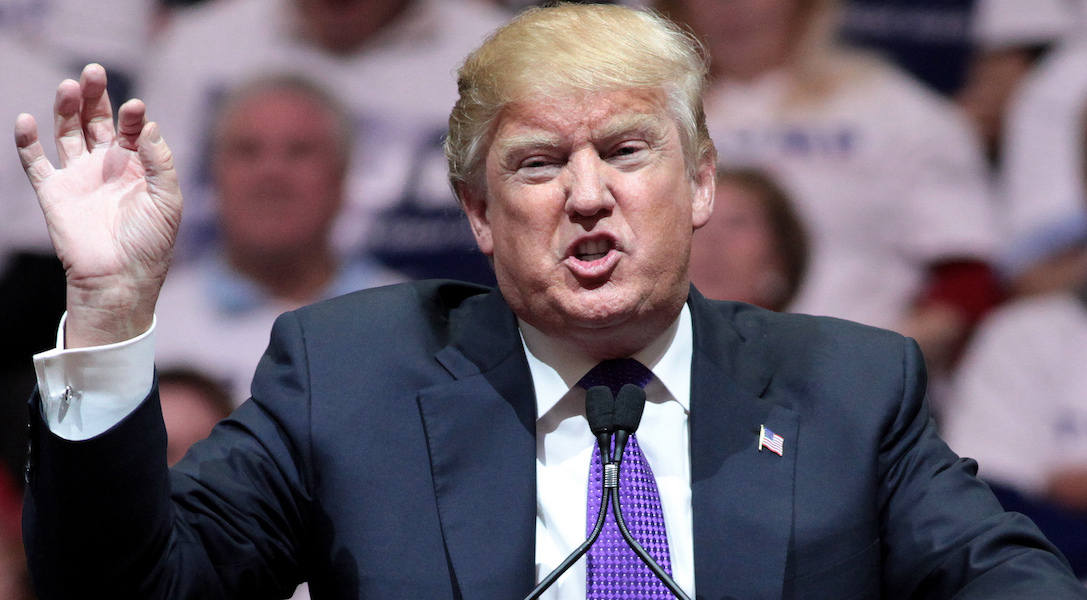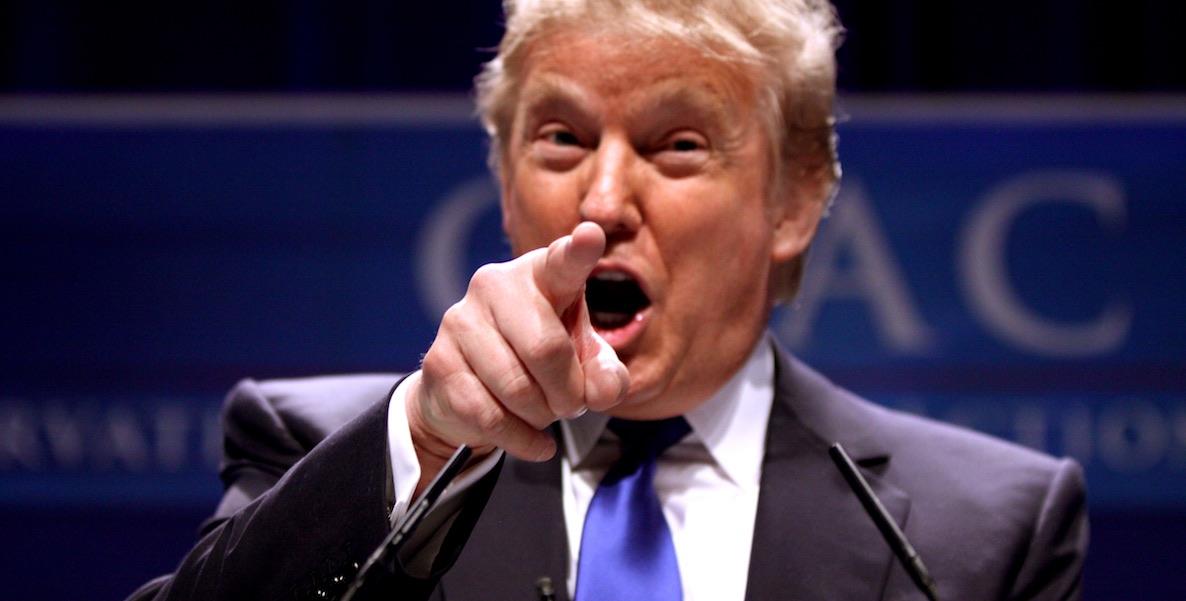Presidents railing against the media is nothing new, of course. Richard Nixon called press outlets the “enemy,” while blackballing and intimidating reporters. But even Nixon had nothing on the current occupant of the White House, whose chief adviser, Stephen Bannon, has declared that the media is the “opposition party.”
The President has tweeted that the media are “the enemy of the people,” as he and his surrogates complain about “fake news” and assert their use of “alternative facts,” while his supporters complain about the “Lugenpresse”—a Nazi-era slur meaning “lying press” in German. Turn on cable news and you can see that the battle lines have been drawn: Journalists are reluctant to believe anything emanating from the mouths of White House counselor Kellyanne Conway and press secretary Sean Spicer, given their penchant for regurgitating verifiable lies.
Recently, things came to a head when the White House banned mainstream news outlets such as The New York Times, Washington Post, BBC, The Guardian and Politico from a press conference, allowing only conservative media organizations such as Breitbart News, The Washington Times and One America News Network.
Many have commented on Trump’s borrowing from Nixon’s media relations playbook, but I wondered whether the real influence behind Trump’s war on the press extends further back. That’s why I called Laura Henderson, a researcher at the University of Pennsylvania. Her work reveals the behavior patterns that link autocrats such as Vladimir Putin in Russia, Recep Tayyip Erdoğan in Turkey, and Viktor Orbán in Hungary, and it’s striking to consider Trump in terms of those examples.
“Another pattern within repressive regimes is support for explicit regime media, prioritized access and close ties,” says Laura Henderson at Penn. “Trump’s desire to legitimate and keep right wing publications such as Breitbart close to the administration seems to mirror the ‘autocratic playbook.’”
“With the rise of these right-wing governments, there is a clear move to restrict, silence, and punish critical voices and constrain independent media writ-large,” Henderson says.
According to Henderson, such censuring occurs in three distinct ways: “Laws and regulations, efforts to impact the economic vitality of critical media channels, and the proactive use of ideological forces—paid groups or trolls online as well as unpaid supporters—to flood information spaces with pro-regime propaganda and to delegitimate oppositional voices,” she says.
The Trump administration has focused particularly on the third strategy—providing “alternative facts” to contest and delegitimize the news disseminated by trusted media mainstays as The New York Times, CNN and the Washington Post. What sets Trump apart from the likes of Nixon and moves his conduct closer to the the likes of Putin is that he has gone beyond calling individual media outlets “the enemy” to categorizing the media in whole as “the enemy of the American People.”
“Another pattern within repressive regimes is support for explicit regime media, prioritized access and close ties,” Henderson adds. “Trump’s desire to legitimate and keep right wing publications such as Breitbart close to the administration seems to mirror the ‘autocratic playbook’ in this way.”
Also noteworthy is how the White House may attempt to pressure media conglomerates that refuse to toe the party line. A prime example is a recent meeting that Jared Kushner, Trump’s adviser and son-in-law, had with a top Time Warner Inc. executive. Kushner complained that CNN’s coverage is biased against Trump, and specifically singled out anti-Trump CNN contributors Ana Navarro, a Republican strategist, and Van Jones, a Democrat who served in the Obama administration. During his epic first press conference on February 16, the president attacked CNN numerous times—at a time when Trump reportedly is against approving the $85.4 billion of Time Warner to AT&T.
”These kinds of pressures need to be watched closely, because they can indicate more serious challenges to media independence,” Henderson warns.
What sets Trump apart from the likes of Nixon and moves his conduct closer to the the likes of Putin is that he has gone beyond calling individual media outlets “the enemy” to categorizing the media in whole as “the enemy of the American People.”
As post-Soviet political expert Hannah Chapman noted in The Washington Post, Trump’s press conference eerily resembled those of Putin: “Access to the president is limited to circus-like news conferences attended primarily by regime supporters who ask the president softball questions,” she wrote. “The most recent of these conferences, held in December, included questions about stray animals, chess and kvass, a traditional drink made from fermented bread. One reporter even asked Putin how it felt to be ‘the most influential person in the world.’”
In Putin’s press conferences, hard-hitting professional reporters who are bound to challenge the leader are sidelined. Such political theater provides the illusion of a free press, all without government accountability and with few opportunities to express dissent.
Both Putin and Trump understand that their press conferences are theater—and they master the stagecraft. Check out this report from a Russian journalist for a preview of what we’re in for from Trump for the next four years: “Facts don’t matter,” writes Alexey Kovalev. “You can’t hurt this man with facts or reason. He’ll always outmaneuver you. He’ll always wriggle out of whatever carefully crafted verbal trap you lay for him. Whatever he says, you won’t be able to challenge him. He always comes with a bag of meaningless factoids (Putin likes to drown questions he doesn’t like in dull, unverifiable stats, figures and percentages), platitudes, examples of false moral equivalence, and straight, undiluted bullshit. He knows it’s a one-way communication, not an interview.”
“Trump and his team have proved adept at changing the conversation, flooding information channels with commentary on a particular quote, tweet, or stunt,” Henderson notes. “It certainly moves the conversation away from any serious policy issues.”
Indeed, after a January Trump press appearance, Garry Kasparov, the former world chess champion and Putin critic, tweeted: “That reminded me of a Soviet press conference. More speakers than questions, more flags than answers.”
Welcome to the media landscape of the authoritarian strongman. Trump poses new challenges to journalists who hope to cover this administration and provide checks and balances to this most atypical president. Preserving the First Amendment and getting the truth out will require reporters to not be cowed, to double down on deep reporting and accuracy, and, most important, to not take Trump’s bait and turn the relationship between the president and the press into a war of words. The best way to hold authoritarian regimes accountable? Telling the truth.
Photo header: Flickr/Gage Skidmore






